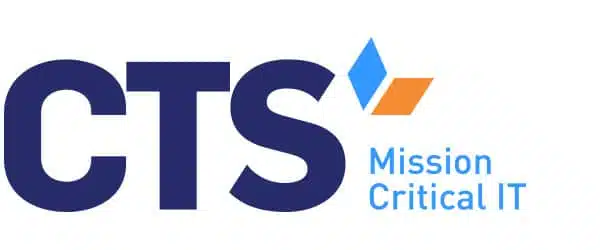Whether it’s a cybersecurity breach, hardware failure, or unexpected natural disaster, the ability to maintain operations under pressure separates successful businesses from those struggling to recover. This is the essence of business continuity.
However, for many companies, relying on an in-house IT team to handle those challenges isn’t enough. The answer is managed IT services: handing the difficulties of maintaining business continuity to professional IT experts, whose main focus is ensuring your IT environment is running securely.
This article will delve into managed IT services for business continuity: the correlation, the importance, and above all, how it will help your business thrive.
What is Business Continuity?
Business continuity refers to an organization’s ability to maintain essential operations during and after unexpected disruptions. Whether the challenge is a cyberattack, natural disaster, or system failure, business continuity ensures that critical processes keep running smoothly, minimizing downtime and protecting against financial and reputational damage.
At the very core, business continuity is about preparation. It involves identifying potential risks, assessing their impact, and creating a reliable plan to address them. Unlike reactive measures that only address problems after they occur, business continuity adopts a proactive approach. It integrates technology, people, and processes into a cohesive strategy that supports long-term resilience.
How Technology Maintains Business Continuity
Technology underpins almost every aspect of modern business operations, from customer communication to supply chain management. When systems falter, businesses face more than inconveniences; they can suffer potentially significant financial and reputational damage.
Here’s why technology is so crucial:
- Communication stays open: Email, messaging platforms, and collaboration tools ensure teams can work together regardless of physical location.
- Critical data stays accessible: Whether it’s customer records, financial reports, or project plans, uninterrupted access to data is key to making informed decisions.
- Processes run efficiently: Automation and IT infrastructure keep repetitive tasks on track, improving productivity and reducing errors.
However, managing these systems internally is often time-consuming and expensive. That’s why many businesses turn to a managed IT services model that provides around-the-clock monitoring, data backup, and a well-crafted disaster recovery plan.
What are Managed IT Services?
Managed IT services are a comprehensive solution that ensures your business IT systems remain secure, reliable, and scalable. Instead of relying solely on an in-house IT team, businesses outsource their technical needs to a managed services provider (MSP) to handle their critical functions.
This service model ensures that technology can support day-to-day operations while safeguarding long-term success. Key features include:
- System monitoring: Regular oversight and updates prevent small issues from turning into major disruptions.
- Data backup: Services offering reliable, modern data backup solutions keep businesses prepared for the unexpected.
- Cost savings and scalability: Managed IT services reduce the need for constant investments in new tools and additional staff, freeing up resources as the business grows.
- Customized Service Level Agreements (SLAs): Tailored agreements ensure businesses get the exact support they need, from around-the-clock helpdesk support to advanced cybersecurity.
Learn more: The Complete Guide to Managed IT Services
How Managed IT Services Support Business Continuity
Managed IT services are designed to protect and sustain your business operations, even when challenges arise. These services ensure your systems remain resilient, downtime is minimized, and disruptions are swiftly addressed. Here’s how they directly contribute to business continuity:
- Proactive monitoring and maintenance: Unlike reactive fixes, managed services identify potential issues before they impact operations. This minimizes downtime and keeps your systems running smoothly.
- Data backup and disaster recovery: A comprehensive backup and disaster recovery plan is essential in the event of an unexpected incident. Most managed services provide solutions that protect critical data and enable rapid restoration after an outage or attack.
- Cybersecurity protection: Few businesses can afford the ramifications of a successful cyberattack. Managed services provide cybersecurity services to keep your systems, data, and network secure against cyber threats. This includes proactive monitoring, patch management, and employee training to reduce risks.
- Strategic IT alignment: Some MSPs offer advanced consulting services aimed at aligning your entire technology environment with your business goals. This can mean integrating industry-specific software, upgrading legacy systems, or managing a full digital transformation.
Learn more: Why Aligning Business and IT Strategies is So Important
The Benefits of Managed IT Services (Beyond Continuity)
While ensuring business continuity is a critical focus, the benefits of managed IT services extend far beyond keeping operations intact. This service model delivers value across several key areas:
- Cost savings: Outsourcing IT needs is by and large more cost-effective than hiring and maintaining an in-house IT team. Businesses can also reduce their physical hardware overheads, and avoid costly technology missteps.
- Scalability: Managed services are designed to grow and change with your organization, providing tailored solutions as your needs expand.
- Improved productivity: With IT systems optimized and monitored, employees can focus on their core responsibilities instead of constantly troubleshooting time-consuming tech issues.
- Enhanced customer trust: Reliable operations mean your customers can depend on your services, even in challenging times.
Choosing the Right Managed IT Services Provider
Selecting the right managed services partner is vital for ensuring your business continuity strategy is effective and reliable. Here are key attributes to look for:
- Services match business requirements: Your provider should deliver solutions tailored to your business, including backup and disaster recovery, cybersecurity, and proactive monitoring.
- Proven expertise: Look for a provider with experience in your industry and a track record of supporting businesses like yours.
- Transparency and communication: A good provider acts as an extension of your team, keeping you informed and involved in your IT strategy.
Secure Your Business Resilience with Managed IT Services
Managed IT services encompass far more than merely fixing IT problems—they provide a proactive approach that keeps business operations running smoothly, enabling organizations to focus on serving their customers, rather than worrying about crises.
CTS provides a wide range of managed IT services that can meet the requirements of any business, no matter how specific. Our expert IT team will identify and resolve issues before they can impact your operations, protect your data, and recommend the right IT solutions that align with your business strategy. Reach out to us for a consultation, and let’s bolster your business continuity.




